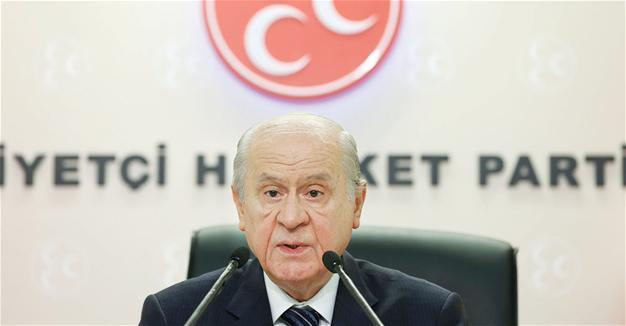Row over Lausanne Treaty continues to roil Turkish politics
ANKARA

AA Photo
Turkish politics continues to be roiled by the debate over the 1923 Lausanne Treaty that established the Republic of Turkey, after President Recep Tayyip Erdoğan derided it as “not a victory.”Nationalist Movement Party (MHP) leader Devlet Bahçeli criticized Erdoğan’s remarks, saying the issue should be left to historians.
“There are always unproductive conflicts and the search for polarization never ends. To be honest I’m surprised. Our new subject is now Lausanne,” Bahçeli wrote on his Twitter account, adding that Erdoğan “contradicted himself.”
“Erdoğan on July 24 said the Lausanne Treaty was the ‘title deed of the republic.’ After two months he said it was being wrongly presented as a victory. Isn’t this a contradiction?” he asked.
Main opposition Republican People’s Party (CHP) leader Kemal Kılıçdaroğlu had previously also criticized Erdoğan’s statements, saying “no one has the right to betray their history.”
“Lausanne is Turkey’s deed. We defend [the Treaty of] Lausanne, they defended Sevres,” said Kılıçdaroğlu, referring to the Treat of Sevres of 1920, which marked the beginning of the partitioning of the Ottoman Empire.
Speaking to reporters late on Oct. 1, Prime Minister Binali Yıldırım slammed Kılıçdaroğlu’s statements, saying that “engaging in politics over Lausanne won’t make Kılıçdaroğlu gain anything.”
“These statements are absolutely wrong. They have no benefit to the unity of the people,” Yıldırım said.
Speaking at a 27th gathering with village chiefs in Ankara on Sept. 29, Erdoğan said some had tried to present the Treaty of Lausanne as a victory.
“July 15 [coup attempt] is the second War of Independence for the Turkish nation. Let us know it like that. They [threatened] us with Sèvres in 1920 and persuaded us to [accept] Lausanne in 1923. Some tried to deceive us by presenting Lausanne as victory. In Lausanne, we gave away the [now-Greek] islands that you could shout across to,” he said.
“We are still struggling about what the continental shelf will be, and what will be in the air and the land. The reason for this is those who sat at the table for that treaty. Those who sat there did not do [us] justice, and we are reaping those troubles right now. If this coup had succeeded, they would have given us a treaty that would have made us long for Sèvres,” he added.
In July, Erdoğan had said the Treaty of Lausanne was the title deed of the republic in a message issued on the 93rd anniversary of its signing.
“The victory, which our glorious nation gained by faith, courage and sacrifice, was registered by transferring it to the ground of diplomatic and international law with the Treaty of Lausanne. This treatment is the title deed of our newly founded state,” Erdoğan said in his message.
Signed on July 24, 1923, the Treaty of Lausanne, which was signed by İnönü, who later succeeded Mustafa Kemal Atatürk as president, is regarded as the final treaty concluding World War I and which secured the foundation of the modern Republic of Turkey after the War of Independence against the occupying forces of Britain, France, Italy and Greece. The treaty recognized the boundaries of Turkey as well as the conditions under which non-Muslim minorities would live in the new republic.
















